Senua's Saga: Hellblade 2 review - a triumphant return to a challenging story
A worrier's tale.
I think it's fair to say Ninja Theory had quite a daunting task when it came to producing a sequel to 2017's Hellblade: Senua's Sacrifice. The original was rightly praised for its exploration of grief, trauma and mental illness, but how do you tell more of a story about a woman's struggles with psychosis without seeming repetitive or worse, exploitative? The answer, it turns out, is you make Hellblade 2 - a game that is nothing short of phenomenal.
As you may remember, Hellblade: Senua's Sacrifice concerns itself with Pictish warrior Senua, a woman living with psychosis as she struggles to come to terms with her mental illness, the stigma that separates her from her community, and the death of her lover Dillian at the hands of raiding Northmen. After an opening cinematic briefly outlining the above, Hellblade 2 picks up more or less where it left off. The Northmen have resumed their raids on Senua's people and she has vowed to stop them. Allowing herself to be captured by slavers, she plans to assault the Northmen's stronghold from within and put an end to the raids once and for all. Unfortunately for her the weather has different ideas, leaving Senua shipwrecked and defenceless in a hostile, foreign land. Bound by her vow, she has no choice but to push on.
This is a game about keeping a promise, in other words. Senua has assumed responsibility for a whole community of people - something that both weighs on her as a character and also shifts the narrative focus away from her slightly. Whereas Senua's Sacrifice is firmly set around Senua and the various traumatic events she's trying to process, Hellblade 2 is much more about the people she meets: those she saves and those she can't, those she trusts and those she fears, and how she navigates those relationships. It's less a game about somebody battling mental illness and more about somebody who happens to have a mental condition going on a great and dangerous journey.
The outward-facing focus of Hellblade 2 is deeply satisfying from a character perspective. While Senua's psychosis is still very much something with which she struggles, she has a markedly different relationship with it after her first outing. Senua not only has more faith in her abilities, she's more compassionate towards herself than we've seen before, indicating that her psychosis is something she's managing, not battling. This is especially evident in her relationship with the Furies - aural manifestations of her condition that essentially provide commentary on what she's doing throughout the game. These voices overlap with one another, speaking in staccato bursts of fear and hope and encouragement and scathing, bitter criticism. While they're certainly not benevolent - listening to them is kind of like an ASMR scenario in which everybody secretly hates you - they do, at least, have more faith in Senua. They encourage her far more than they used to and even go so far as to stick up for her. When other voices drift into Senua's mind - her deceased, abusive father chief among them - the furies side with their host more often than not, urging her not to listen and to remember her strength. It's a rewarding sense of progress, especially considering how hard Senua had to fight to get there.
From a structural perspective, the core experience of Hellblade 2 is largely unchanged from the first. Senua's world is a series of puzzles, many of which hinge on tricks of perspective, interspersed by abrupt combat encounters and intense periods of hallucination. The puzzles are, for the most part, periods of calm and reflection - in some, Senua needs to walk around and line up certain elements in the world around her to make the shape of certain runes. In others, she finds herself in areas that are mirrored on the ceiling, requiring her to swap between these two spaces in order to make headway. They're not overly challenging, but still provide a sense of satisfaction when the solution becomes clear.
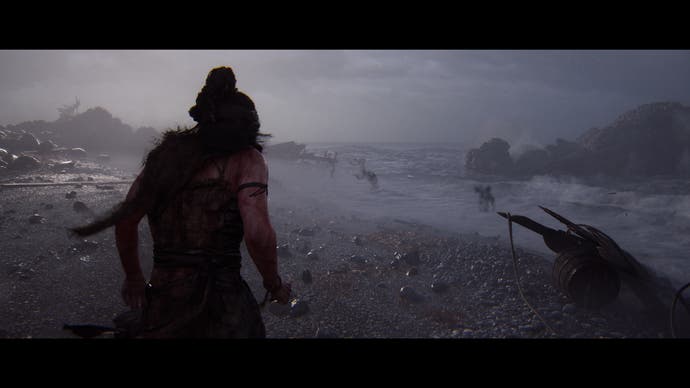
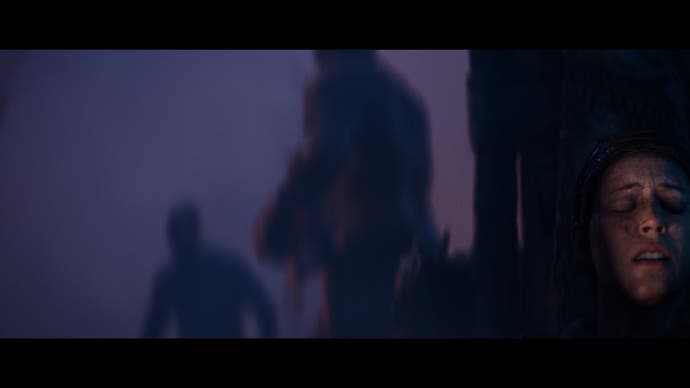
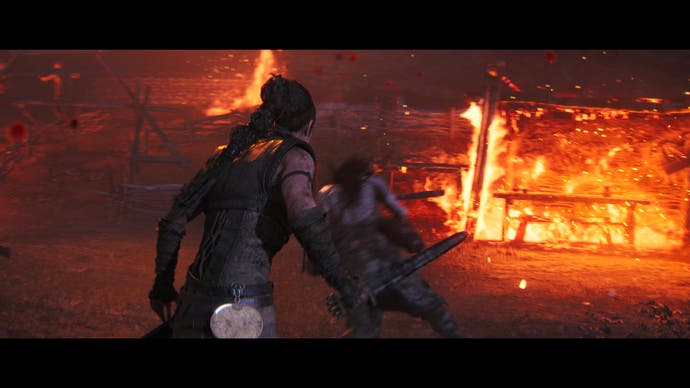
As in the first, combat encounters are all about timing. Learning to dodge and parry attacks at the right moment is key, with perfectly timed blocks filling up a gauge that allows you to slow time and deal a flurry of attacks to your adversary. It's fairly forgiving - Senua can tank a surprising amount of damage and the game is quick to get you back into the fight on the rare occasions you do actually fall. That said, I found myself taking a lot more hits than I would have liked throughout the game, especially with some of the faster enemy types that are hard to read. These enemies fight differently as the game goes on, which keeps you on your toes and, without giving any of the story away, some of them are absolutely horrific.
The hallucinations into which Senua sometimes drifts are both intensely vivid and skillfully introduced. Oftentimes you won't realise Senua's sense of reality has become distorted until she's already some way into it, at which point the world around her shifts and warps, pressing in on her and realising some of her greatest fears. These hallucinations tend to happen during particularly emotive story beats, advancing the action and reflecting Senua's conflicted mental state. It's deft storytelling, for one thing, but it also ensures Hellblade 2 isn't torturing Senua for the sake of it. With the caveat that I have never experienced psychosis myself, the representation strikes me as thoughtful and grounded where it would be very easy to produce something garish and reductive.
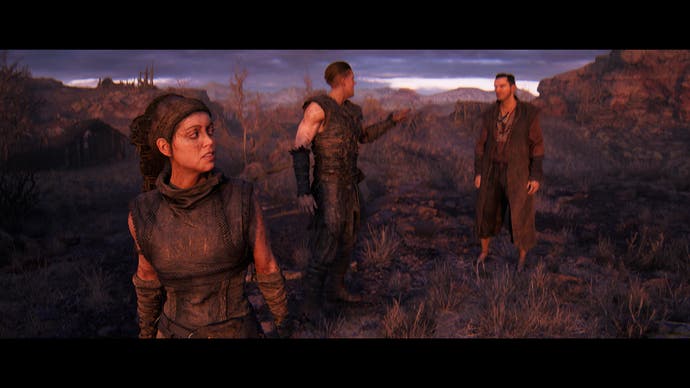
There were, however, a couple of moments that made me wary, in which Senua is described as being chosen, or special, or as having powers from beyond the veil. Most of these comments come from the character Fargrímr, who is something of a mystic and, lest we forget, living in the 9th Century, but I was surprised to find one or two of them coming from the game's narrator. Chosen One narratives are certainly nothing new in video games or in fantasy, but using that framing around a character like Senua requires caution. This is a character who is strong in spite of her illness, not because of it and, while the moment was brief, I was surprised to see Hellblade 2 blurring that line even a little.
That quibble aside, Hellblade 2 is a superb game from a team that clearly knows what made the first one special. To say that the core experience is familiar, is not to say that it is simply more of the same - rather, it has both refined and expanded on the original on all fronts, creating a sequel that is nothing short of stunning.
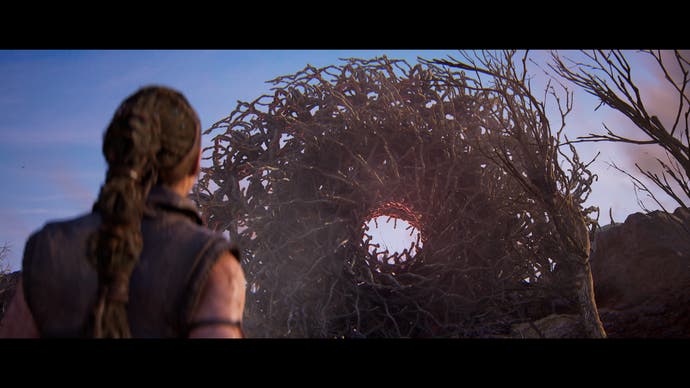
For one thing, Hellblade 2 is absolutely gorgeous. The environments are rich, detailed and exquisitely lit - I genuinely struggle to think of another game in which the lighting is such a prominent and active part of the storytelling process. The character animations are smooth and believable, while the facial capture helps bring commanding performances from the likes of Melina Juergens, Chris O'Reilly and Aldís Amah Hamilton to life. I've also never felt compelled to mention lichen in a review before, but the moss and lichen studded throughout the game are both absolutely top notch.
Second, the combat is superb. It's responsive, allowing for feint attacks that throw off your enemies, and the animations absolutely shine throughout. Previously, groups of adversaries used to surround Senua and patiently wait their turn, which was functional if not necessarily exciting. Now, previously unseen combatants crash into view to replace the one you just dispatched - sometimes fleeing NPCs come with, getting cut down or tackling somebody out of the way. The camera responds to crushing blows and shifting tides with real weight, providing a sense of heft to battle that rivals even the best that God of War has to offer. In doing so, it wrests a good deal of camera control away from the player and, arguably, puts each set piece firmly on rails, but the payoff is electric.
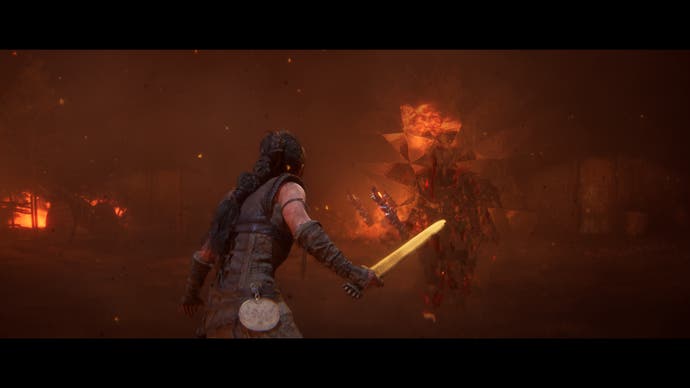
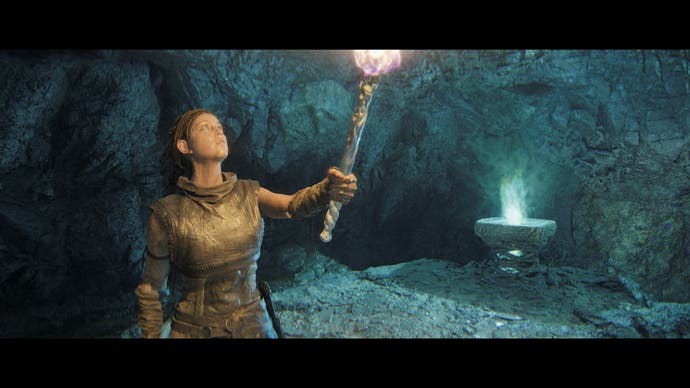
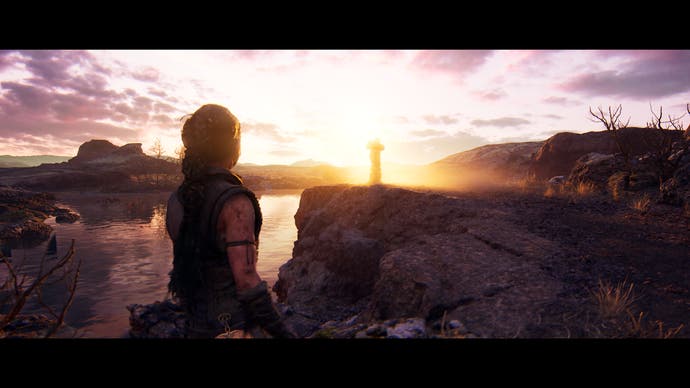
If there's one thing for which Senua's Sacrifice was especially well-praised it was the audio, and Ninja Theory has brought the same level of excellence to the sequel. The whispering of the furies flits from ear to ear like they're toying with you, while distorted booms and unsettling noises ring out from the darkness. The soundtrack features work from Heilung, a band whose pounding drums, throat singing and occasional snarls seem tailor made for the setting (the members of Heilung describe their music as 'amplified history', which is certainly fitting.) I'm loath to describe playing Hellblade 2 with headphones as a treat - at times it's downright uncomfortable - but it really is the best way to experience it.
Really my main takeaway from Hellblade 2 is that it pulls absolutely zero punches. The violence is brutal throughout and, at times, the game strays into fully-fledged horror. I consider myself to have a fairly strong constitution, but at a few points early in the game I found myself feeling genuinely queasy. There's also a section later on which could have come straight from Neil Marshall's 2005 film The Descent, which made me very unhappy indeed. The story goes to some extreme places both in terms of Senua's past and the relationships those around her are trying to manage, and her reactions to those extremes are genuine and heartfelt. With all of this wrapped up with an intricately designed soundscape, supremely fluid action and outstanding visuals, it's not only a grand production, but one that delivers its message with absolute power and verve..
In short, Hellblade 2 is as confident a sequel as any I've ever seen - Ninja Theory has shown tremendous ambition with this game and the result is equally tremendous. A lot has changed since the release of Senua's Sacrifice in 2017, not least in terms of our comfort and familiarity with mental health and mental illness as subject matter but, if there was any doubt as to whether Hellblade could move with the times, it can be safely put to rest now. Ninja Theory has not only proven it can read a changing landscape, but that Hellblade and Senua absolutely still deserve a place of prominence within that space.
A copy of Senua's Saga: Hellblade 2 was provided for review by Xbox Game Studios.



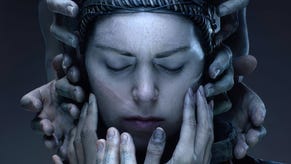
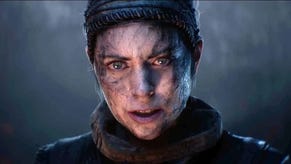
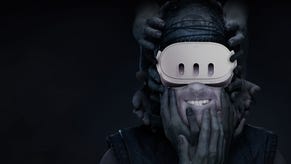
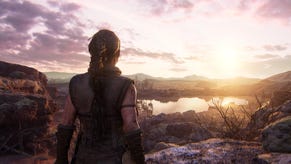
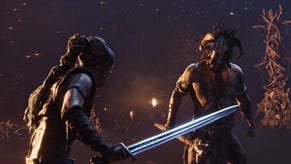
.jpg?width=291&height=164&fit=crop&quality=80&format=jpg&auto=webp)